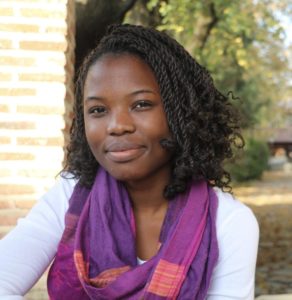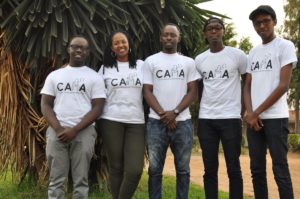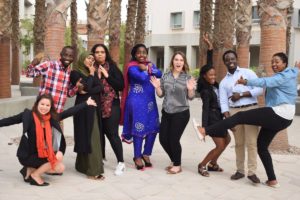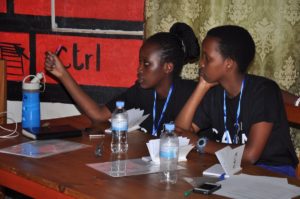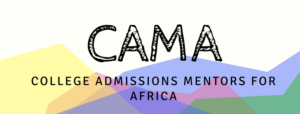What three adjectives would people use to describe you?
Compassionate, Driven, and Joyful
What is the challenge your venture seeks to address? How is your venture addressing the challenge?
My venture is College Admissions Mentors for Africa, or as we lovingly call it CAMA. We seek to address disparities in accessing educational opportunities. Many African high school students are unable to attend tertiary education institutions because they do not have the counselors or mentors that will partner with them to dismantle the barriers and stereotypes about who can and cannot pursue a global education. CAMA directly confronts this gap by pairing high school students with trained mentors who have gone through the university application process themselves and are willing to develop a long term relationship with the student that will support both their professional and personal development. The skills, reflection, and experience mentees gain allow them to apply to local, regional, and international universities, but more importantly, foster self-confidence and growth.
Have you been personally affected by this issue? If so, how?
I am privileged to have had a college counselor when I was applying to universities in South Africa, the United States, and the United Kingdom. Yet still, I struggled with understanding what was expected of me and often lacked the insider’s knowledge that other applicants seemed to have. Furthermore, I had friends who did not have counselors and although they succeeded because of their hard work and perseverance, we both knew that if access to education was more equitable, applying to university should not have felt like pushing a boulder up a steep mountain.
What inspired you to start your venture?
After I got into my undergraduate college, I started informally supporting other students, some of whom I knew directly and some that had contacted me for the first time. Whether it was giving them feedback on their personal statements or directing them to databases that indicated which universities were generous with financial aid, I felt I was doing my part to use the knowledge I had gained to support the aspirations of students in whom I saw parts of me and my friends. Together with other colleagues from African countries, we decided to systemize our efforts so that they could be durable, sustainable, and impactful not only on the students’ applications but their sense of being as a young adult professional.
How has the Fellowship helped you achieve your goals?
The Resolution Fellowship has been such a formative part of my growth as a leader and team member. Through my wonderful Guides, Lauren and Ashley, who were encouraging and helped us develop a strategic vision for our venture, we have been able to go above and beyond what we first hoped CAMA would be. The funding from The Resolution Project allowed us to conduct on-the-ground workshops in Ghana and Rwanda in Summer 2019 and the Resolution network connected me to other young global changemakers whom I have had the pleasure of collaborating with and gaining inspiration from for future projects along the way. Most importantly, the Fellowship has decreased the inertia between idea and execution, a spirit that I will continue to carry with me.
What do you love most about your home community?
The unity. My home communities in both Zimbabwe and South Africa put an emphasis on everyone contributing in their special way to support each other. This means that I was raised by my neighbors, aunts, and uncles as much as I was by my parents. It has definitely expanded my definition of family and this ethos has allowed me to develop timeless relationships with people around the world.
Why is it important for young people to focus on social impact?
It can become so easy to be sucked into structures and institutions that promise self-actualization without wider engagement beyond one’s own interests. Unfortunately, these institutions dominate our society’s landscape and have exacerbated not only educational inequality but also housing, health, and social divides between the wealthy and the poor. Young people focusing on social impact helps to invert this framework and builds a house that is stronger, more inclusive, and far more fulfilling. Such efforts can only continue to inspire further positive change in future generations as well.
CAMA has been able to function well during COVID-19 because we were primarily an online program even before the pandemic began, with the exception of our summer programs. However, the global uncertainty did impact the confidence of our mentees when it came to applying to tertiary institutions abroad. Nevertheless, our mentors, with the support of the Executive Board, were able to help mentees evaluate several different paths available for them to achieve their goals. COVID-19 also brought on a rise in online learning with its successes and failures. As such, we took this opportunity to strengthen our own curriculum and engagement to ensure we were still reaching the students who needed us and, as a result, CAMA was proud to successfully recruit another diverse cohort of mentees in the 2020-2021 Mentorship Cycle.
It’s okay to slow down and take the time to reflect, heal, and come back fighting even harder. Sometimes we don’t give ourselves enough time to recharge and 2020 forced me to do that. Moving forward I won’t need global crises to make this a regular practice in my life.
